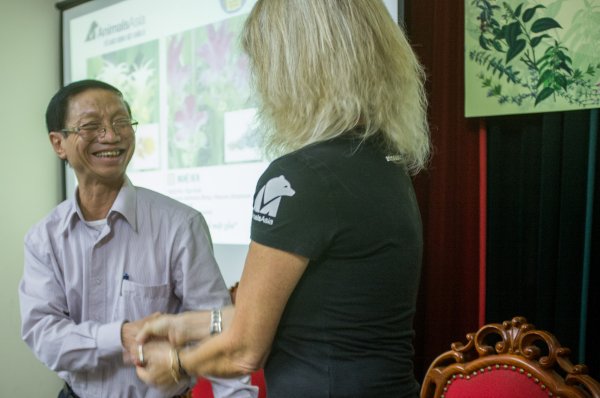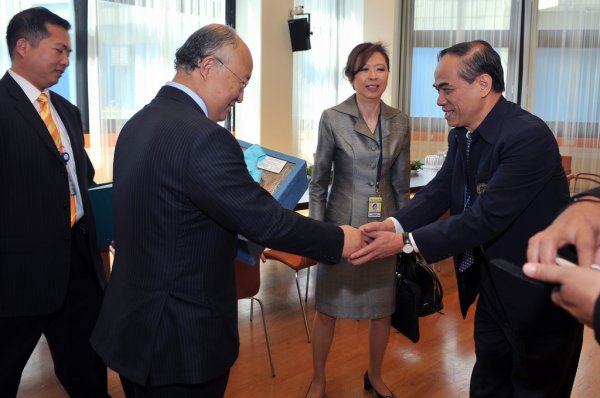Business Style
Vietnam is a culturally rich communist country whose society reflects the enduring influences of its previous colonization by China and France. Once a struggling, war-torn nation, Vietnam in recent decades has experienced substantial economic growth, though high inflation has lately threatened the nation's newfound relative prosperity. Vietnamese businesspeople value hard work and efficiency, and generally speaking, they maintain enthusiasm for business—though in some cases, their experience in conducting business in an international setting is still developing. It will be useful for visiting businesspeople to try to understand the country’s complex history, society, and economy in order to develop solid business relationships.
Previously inefficient business laws and regulations are slowly being reformed and gaining more transparency, which is improving Vietnam’s general reputation in the international business environment. The legal framework for combating corruption is getting stronger, but this issue is one with which the country still struggles, as its place in Transparency International’s Corruption Perceptions Index reveals. In general, private firms are perceived to be doing the best they can to further private enterprise and develop the local economy.
Women are very much a part of Vietnamese working life, and Vietnamese businessmen are accustomed to working with foreign women in a business context. That said, Vietnam's is a male-dominated culture. The visitor will encounter fewer women in leadership positions than Vietnamese women's rates of educational attainment would suggest; women often hold supportive and administrative positions. The visitor's experience may vary, as gender inequity is more apparent in rural areas than in urban areas. But regardless of the particular itinerary, mixed-gender visiting teams, especially visiting teams led by women, will benefit from strategizing ahead of time about how to encounter their counterparts in such a climate.
Relationship Building
Confucian philosophy is a vital thread of Vietnamese society. It focuses on the cultivation of virtue and the maintenance of ethics, places the needs of the group above those of the individual, and accentuates the importance of relationships, responsibility, and obligation—in personal life as well as in business dealings.
All in all, the influence of Confucianism likely means that you will benefit from spending time developing business relationships. Getting acquainted with your Vietnamese counterparts, perhaps by inviting them out for a meal, will help illustrate to them that you are reliable, hardworking, and trustworthy.
Dignity, status, a good reputation, and saving face are also critical. Be aware of words, actions, and nuances so as to avoid unintentionally causing a loss of dignity, which could potentially irreparably harm your counterpart. Breaking a promise or criticizing others in public are ways of losing face, sometimes for both parties.
This concept of saving face may result in inadvertent miscommunication with visitors. Vietnamese businesspeople tend to shy away from confrontation, and they don’t like saying “no”; if they don’t understand or agree with a request, suggestion, or question, they may tell you what they believe you want to hear—or simply remain quiet. Therefore, visitors should attend carefully to body language, tone of voice, long pauses, and other context cues. If you need to address a sticky issue with a counterpart, try to discuss the issue in private, so your counterpart is not publicly embarrassed.
Etiquette
Much of Vietnam’s international business is conducted in English. However, having speakers of Vietnamese and French on your team may be beneficial, especially if you are in a more rural area, where English is less common. It is advisable to have all written documents translated into Vietnamese, and to have a translator on hand to avoid any confusion.
Schedule your meetings with as much notice as possible. Be punctual. Do not assume you can be late or miss a meeting without notification.
Use titles. Vietnamese names begin with the surname, followed by the middle and then the given name. When referring to one another, Vietnamese people will use the appropriate title followed by the given name, not the surname. The use of pronouns to show deference for age and seniority is complex in Vietnamese; learn from your counterparts the correct pronouns for an individual’s age and rank.
It is advisable to have one side of your business card printed in Vietnamese. When presenting your card for the first time, use both hands to offer it, with the Vietnamese side facing up. When receiving a card, show proper respect—merely glancing at the card and setting it aside is disrespectful.
Elevated vocal tones and excessive hand gestures are considered impolite, sometimes indicating anger, and may make your counterparts uncomfortable. While initial eye contact indicates honesty, maintaining direct eye contact is considered disrespectful. Shaking hands is fine when meeting your counterparts, regardless of gender, although you should wait for a woman to extend her hand; if she does not, bow your head slightly. Some Vietnamese people will greet you with a two-handed shake, placing the left hand on top of the right wrist. But generally, physical touch in public is kept to a minimum.
Article written for World Trade Press by A. Cotham.
Copyright © 1993-2025 World Trade Press. All rights reserved.







